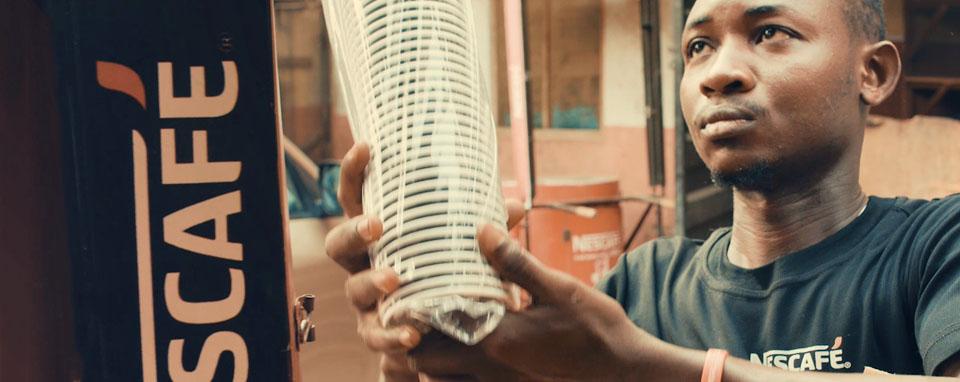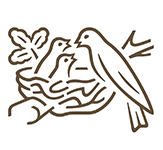Coffee Entrepreneur: How Nescafé Helped Wasiu Get Started

It’s not yet 5am, but Wasiu Adeyeye has already cleaned his small pushcart and begun loading it with cups, hot water, sugar, stirrers and Nescafé coffee.
He’ll spend the day winding his way through the streets of Oshodi, a suburb of Lagos in Nigeria, selling fresh, hot coffee to street traders, commuters, office workers and shoppers.
Over the years, Wasiu has worked hard to gain the trust and friendship of his customers, and he now sells between 70-100 cups of coffee a day, smiling and chatting as he goes.
Wasiu was introduced to Nescafé’s My Own Business scheme by his old school friend and fellow coffee vendor Lekan Ajayi.
“At first, when he told me about the job, I didn’t think I would be successful at it,” Wasiu says. “However, three months into the job I realised that with hard work and persistence I would succeed.”
Hard work pays off
A central operator supplied Wasiu with everything he needed to get started. Instead of the carts, some sellers carry distinctive red Nescafé drinks dispensers and cups in a backpack, or a forward-facing harness.
“I stayed silent as I understudied my friend, watching how he interacted with customers to gain their trust. Now I sell between 70-100 cups every day on the busy streets of Oshodi,” he explains.
Seven years later, Wasiu is still pushing his cart, and has no regrets about taking the job. “In fact, I’ve been able to cater for my child, pay her fees. I take care of her mother, who is also doing well.” he says.
“Today I own my house. This wouldn’t have been possible without Nescafé.”
My Own Business is helping thousands of young people in Central and West Africa by allowing them to run their own street vending business.
It also contributes to Global Youth Initiative, which has an ambition to give 10 million young people around the world access to economic opportunities by 2030.
Teaching key business skills
If a vendor wants to become an operator, Nescafé provides training on how to run a business, teaching the sellers about management, hygiene, quality and safety, as well as helping them to secure access to a supply of clean boiling water.
These operators then recruit more vendors from their community, setting targets, fixing working hours and overseeing the business.
It is something that Wasiu aspires to.
“By the grace of God, through hard work, focus and an unrelenting resolve, I’m confident that my future is promising,” he says.
Decent Work and Economic growth is the eighth of the UN's Sustainable Development Goals (SDGs). It is also an enabling factor for other SDGs, including Zero Hunger, No Poverty, Good Health and Well-being and Quality Education.
Sub-Saharan Africa has the highest youth working poverty rates globally, at almost 70%, according to the UN's Global Youth Unemployment Report.
My Own Business is helping to address this problem, and has already helped more than 4,500 young people, including 1,000 women, start their own micro-enterprises.
Young people like Wasiu, who takes pride in his work, and has gained valuable business skills and the means to lift his family out of poverty.

